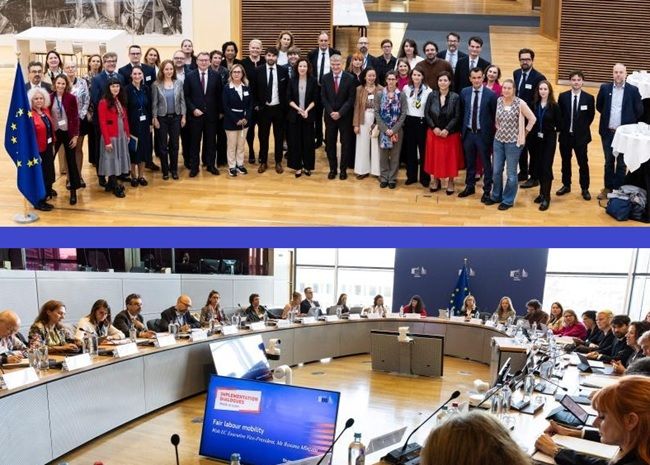


As the European Commission is preparing the launch of a Fair Labour Mobility, on 16th September, Executive Vice-President for Social Rights and Skills, Quality Jobs and Preparedness, Roxana Mînzatu, hosted an Implementation Dialogue with a selection of Social Partners, relevant organisations and Member State’s representatives. Director for Social Affairs, Christine Le Forestier, represented FIEC at this occasion.
Together with transport and hospitality, construction has been identified amongst the most relevant sectors targeted by this forthcoming initiative. Le Forestier pointed out that, "for the sake of a healthy and mobile construction industry, FIEC is calling for better information to be provided to companies and workers about their rights and duties, better enforcement of the comprehensive set of existing rules – with the help of sectoral social ID cards where they exist – better recognition of professional qualification to facilitate the free movement of workers, and a positive guidance for the recruitment and integration of Third-Country National workers. Moreover, the digitalisation of procedures and data must aim at simplifying’s companies’ life without jeopardising enforcement and controls."
Reacting to the trade unions’ repeated request to limit subcontracting, Le Forestier insisted that introducing limits to subcontracting at the EU level is not the right path. What companies need is to be provided with the proper tools to control who they are doing business with.
In her conclusions, EVP Mînzatu informed that the forthcoming package, to be presented during the first half of 2026, will address:
- The work and mandate of the European Labour Authority (ELA)
- Digitalisation of social security coordination and the launch of the European Social Security Pass (ESSPASS)
- Legal clarity on posting of Third-Country Nationals
- Subcontracting chains abusive practices and frauds in risky sectors
- Automatic recognition of professional qualifications.
